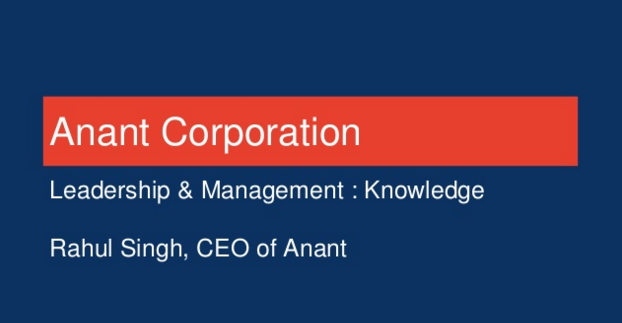Successful companies have strong principles that have helped guide them through their growth. The word principles is often used in business, only occasionally understood, but very rarely exercised the way it is defined. In our own journey be better leaders and business people for our team at Anant, I’ve come across different personal and corporate principles which I have learned from and adopted as my own over the years. Our current set of corporate principles is a combination of ideas from my own Principles of the Modern Enterprise (upcoming post), and Amazon’s Leadership Principles. As we continue to improve our principles to reflect our vision and who we are, we strive to learn from others to be in line with our principle of “Don’t reinvent the wheel” and study those made by Apple, Amazon, Ford, Bridgewater Associates, and General Electric.
Apple Corporation | Steve Jobs & Mike Markkula
Principles 2,3,4 I learned about several years ago and helped us shape our Sales & Marketing vision.
- Craft, above all.
- Empathy.
- Focus.
- Impute.
- Friendliness.
- Finding simplicity for the future in metaphors from the past.

Bridgewater Associates | Ray Dalio
I’m currently reading this book and each of these principles has 10 other sub-principles. This is a practice manual for leadership, which I wish I had when I started the entrepreneurship journey.
- Life Principles
- Embrace Reality and Deal with it
- Use the 5-Step process to Get What You Want out of Life
- Be Radically Open-Minded
- Understand That People Are Wired Very Differently
- Learn How to Make Decisions Effectively
- Work Principles
- To Get the Culture Right …
- Trust in Radical Truth and Radical Transparency
- Create a Culture in Which It Is Okay to Make Mistakes and Unacceptable Not to Learn from Them
- Create Meaningful Work and Meaningful Relationships
- Get and Stay in Sync
- Believability Weight Your Decision Making
- Recognize How to Get Beyond Disagreements
- To Get The People Right …
- Remember That the WHO is More Important than the WHAT
- Hire Right, Because the Penalties for Hiring Wrong are Huge
- Constantly Train, Test, Evaluate, and Sort People
- To Build and Evolve Your Machine …
- Manage as Someone Operating a Machine to Achieve a Goal
- Perceive and Don’t Tolerate Problems
- Diagnose Problems to Get at Their Root Causes
- Design Improvements to Your Machine to Get Around Your Problems
- Do What You Set Out to Do
- Use Tools and Protocols to Shape How Work is Done
- And for Heaven’s Sake Don’t Overlook Governance!
- To Get the Culture Right …

Amazon | Jeff Bezos
We have adopted these for our company. See our extended article on how these leadership principles apply to us.
- Customer Obsession
- Ownership
- Invent and Simplify
- Are Right, A Lot
- Learn and Be Curious
- Hire and Develop the Best
- Insist on the Highest Standards
- Think Big
- Bias for Action
- Frugality
- Earn Trust
- Dive Deep
- Have a Backbone; Disagree and Commit
- Deliver Results

Ford Motor Company | Henry Ford
- An absence of fear of the future or of veneration for the past.
- A disregard of competition.
- The putting of service before profit.
- Manufacturing is not buying low and selling high.

[Edison] General Electric | Thomas Edison
- Never get discouraged if you fail. Learn from it. Keep trying.
- Learn with both your head and hands.
- Not everything of value in life comes from books – experience the world.
- Never stop learning. Read the entire panorama of literature.

Initially, I was going to post the “Principles of the Modern Enterprise” which we have established at our firm as a way to build modern organizations. Some of them are unique to our firm, but many are learned from absorbing from great founders and organizations like the ones we reviewed in this article. Knowing these principles is one thing, but practicing them is another. Knowledge is no good if not used. I hope you learned something and are inspired to create your own personal or organizational principles to help you build your business platform. If you have other great examples of personal or business principles, let me know.
Photo by William Bout on Unsplash



